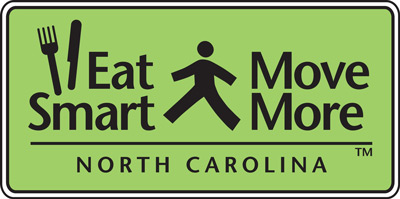Since 2002, the Growing Minds Farm to School Program (a program of Appalachian Sustainable Agriculture Project, or ASAP) has offered children in Western North Carolina and the Southern Appalachian Mountains opportunities to learn about local food and farms in the classroom, cafeteria, and community. Now a nationwide movement, Farm to School and Preschool programs feature… Read more »
Archives: News
News custom post type
Medical Food Pantry Emergency Bag Contents; Client Education Handouts; and Volunteer Training PowerPoints
The Medical Food Pantry at Vidant Medical Center, Greenville, NC is a partnership of the Brody School of Medicine, Vidant Medical Center, the Food Bank of Central and Eastern North Carolina that provides emergency shelf stable foods to patients of Vidant and ECU who screen food insecure. Eastern AHEC is the training partner. Patient education materials,… Read more »
Register for the #NCCrunch2021
Registration for the 2021 North Carolina Crunch is now live! Sign up now for the 2021 North Carolina Crunch to receive a free guide with tips and resources so that you are ready to crunch this fall. The N.C. Crunch, co-hosted by the Farm to School Coalition of North Carolina and N.C. Farm to Preschool… Read more »
Message from the Chair – May 2021
Dear Eat Smart, Move More NC Partners, Blooming flowers, thriving gardens, longer days, more sunshine and activities outdoors are signs of the spring season that help me feel refreshed and grateful. I hope you are enjoying this beautiful season as well! The Eat Smart, Move More NC Executive Committee has remained active and launched a… Read more »
Summary of Eat Smart, Move More NC Partners Meeting – April 27, 2021
Our first Eat Smart, Move More NC Partners Meeting of 2021 was held on April 27 and we were very fortunate to have Dr. Cheryl Giscombé from the University of North Carolina at Chapel Hill present about stress management as a core behavior for addressing obesity and achieving optimal health. Dr. Giscombé’s presentation helped us… Read more »
Newly Updated Breastfeeding Support Toolkit – Making It Work
Making It Work: A Breastfeeding Support Toolkit for NC Employers, Working Moms, Families and Advocates has been updated and is now available in both English and Spanish. More than 80% of women choose to breastfeed and supporting them at work benefits businesses and the families. The Making It Work toolkit provides clear steps and solutions… Read more »
New Quick Reference Guide from the NC State Nutrition Action Coalition (SNAC)
The NC Food and Nutrition Resource Programs quick reference guide provides a snapshot of fourteen different United States Department of Agriculture (USDA) Food and Nutrition Service (FNS) programs available in North Carolina. These programs provide a vital source of nutrition support and act as a stimulus for local economies. This brochure is designed to be… Read more »
May is Med Month!
May is International Mediterranean Diet Month (aka Med Month). This month-long celebration creates awareness of the delicious foods and wide-ranging health benefits associated with the Mediterranean style of eating and living. The Mediterranean diet has been extensively studied and is associated with promoting health and decreasing the risk of many chronic diseases including some forms… Read more »
Osteoarthritis Action Alliance’s New WWE Registration Portal
The Osteoarthritis Action Alliance’s new WWE Registration Portal, which streamlines the registration, book mailing, data collection, and reporting processes is now available! When participants register through this portal, they can also use it to log their walking goals and accomplishments each week of the 6-week program (as seen here). We are now able to offer… Read more »
Equitable Enforcement to Achieve Health Equity
This guide for practitioners was shared by partners at our September 2020 virtual meeting. It is offered by Change Lab Solutions, a national organization that advances equitable laws and policies to ensure healthy lives for all. Change Lab Solutions prioritizes communities whose residents are at highest risk for poor health.

